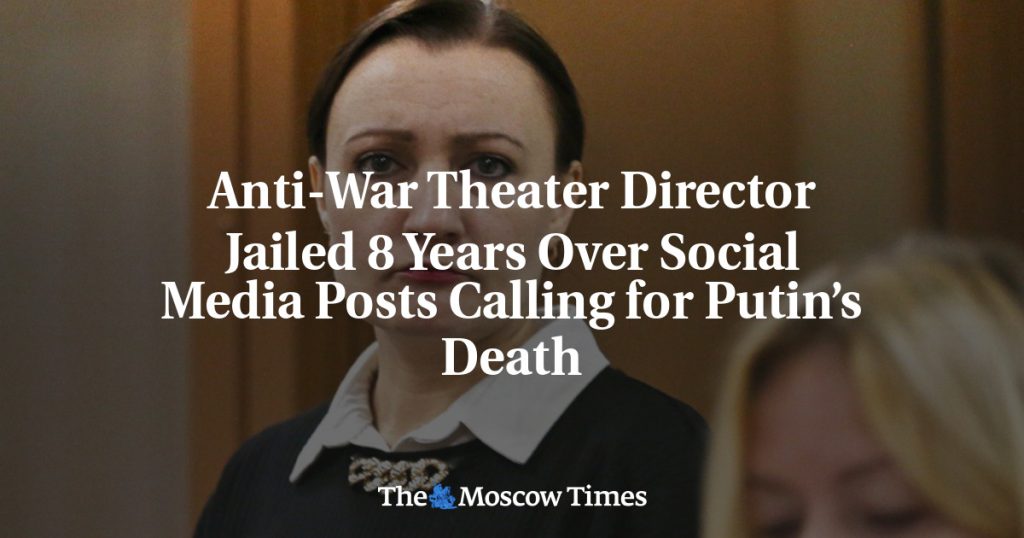The content reported that a Russian military court sentenced theater director Anastasia Berezhinskaya to eight years in prison for making anti-war comments, including calls to kill President Vladimir Putin. She was accused of discrediting and spreading false information about the Russian military, as well as justifying terrorism in posts on the social network Vkontakte. Berezhinskaya accused Russian soldiers of killing civilians and destroying cities following the full-scale invasion in February 2022. She pleaded partially guilty in court but denied that her comments about Putin were a genuine call to murder him.
During the court proceedings, Berezhinskaya expressed that she had nothing to say or add and was willing to accept any decision made by the court. The 2nd Western District Military Court in Moscow found her guilty and sentenced her to eight years in prison, despite prosecutors requesting a 10-year sentence. Some of Berezhinskaya’s posts on Vkontakte had very low view counts, and access to her page has been blocked in Russia. The report mentioned that Berezhinskaya has two children and has been diagnosed with a personality disorder, which did not require compulsory treatment or prevent her from standing trial.
The content also included a message from The Moscow Times, stating that they are facing unprecedented challenges, with the Russian Prosecutor General’s Office designating them as an “undesirable” organization. The authorities have criminalized their work and put their staff at risk of prosecution. The Moscow Times has been labeled as a “foreign agent,” and the actions taken against them are seen as attempts to silence independent journalism in Russia. The message requested support from readers to continue their work and defend open, independent journalism in the face of repression.
The case of Anastasia Berezhinskaya highlights the challenges faced by individuals who express dissenting views in Russia, particularly regarding the ongoing military operations and the country’s leadership. The severe sentence handed down in this case raises concerns about freedom of expression and the consequences of criticizing the government or military actions. The situation also reflects broader issues related to press freedom and the ability of journalists and media organizations to report independently without facing censorship or persecution.
The message from The Moscow Times underscores the importance of supporting independent journalism and the vital role it plays in providing accurate and unbiased reporting on critical issues. Despite facing obstacles and threats, the journalists at The Moscow Times remain committed to their work and refuse to be silenced. The call for support from readers emphasizes the value of independent media in holding those in power accountable and providing information that may not be available through state-controlled channels.
In conclusion, the case of Anastasia Berezhinskaya and the challenges faced by The Moscow Times serve as reminders of the ongoing struggles for freedom of expression and independent journalism in Russia. The sentencing of Berezhinskaya for her anti-war comments highlights the risks individuals face when expressing dissenting views, especially when it comes to criticizing the government or military actions. The message from The Moscow Times reinforces the importance of supporting independent media outlets that strive to provide accurate and unbiased information in the face of censorship and repression. The content reflects a broader context of press freedom issues in Russia and the need to defend and protect the rights of journalists and individuals to express their views without fear of persecution.














